
Evanescence is an American rock band founded in 1994 by singer and keyboardist Amy Lee and guitarist Ben Moody in Little Rock, Arkansas. After releasing independent EPs as a duo in the late '90s and a demo CD, Evanescence released their debut studio album, Fallen, on Wind-up Records in 2003. Propelled by the success of hit singles like "Bring Me to Life" and "My Immortal", Fallen sold more than four million copies in the US by January 2004, garnering Evanescence two Grammy Awards out of six nominations. They released their first live album and concert DVD, Anywhere but Home, in 2004, which sold over one million copies worldwide.

Fallen is the debut studio album by American rock band Evanescence, released on March 4, 2003, by Wind-up Records. Co-founders singer and pianist Amy Lee and guitarist Ben Moody began writing and recording songs as Evanescence in 1994, and after releasing two EPs and a demo CD, they signed to Wind-up in January 2001. Several of the songs from their earlier independent releases feature on Fallen. The album was recorded between August and December 2002 in several studios in California. It is Evanescence's only studio album to feature Moody, who left the band in October 2003.
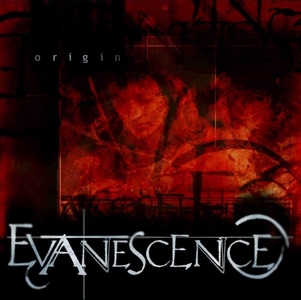
Origin is a demo album by American rock band Evanescence. A compilation of home-recorded demos from 1996-1999, the CD was self-released and sold at local shows, and then packaged to showcase to record labels. A total of 2,000 copies were made and sold by the Bigwig Enterprises website from November 4, 2000 to 2003. Origin contains demos written and recorded by co-founders Amy Lee and Ben Moody for their earlier independent EPs in the 1990s, including "Whisper", "Imaginary", and "My Immortal", which appear on their debut album Fallen (2003).

"Bring Me to Life" is the debut single by American rock band Evanescence from their debut studio album, Fallen (2003). It was released by Wind-up as the album's lead single on January 13, 2003, following its inclusion in the soundtrack of the film Daredevil.

"My Immortal" is a song by American rock band Evanescence from their debut studio album, Fallen (2003). It was released by Wind-up Records on December 8, 2003 as the album's third single, following its inclusion on the soundtrack to the film Daredevil. The song was written by singer and pianist Amy Lee and guitarist Ben Moody when they were 15. Several versions were recorded, with the earliest in 1997. Wind-up used the recording from their 2000 demo CD on Fallen against Lee's wishes, which featured Lee's demo vocals and a MIDI keyboard. Strings from Daredevil composer Graeme Revell were added during the production of Fallen. The single, dubbed the "band version", is the re-recording Lee and Moody made for Fallen, featuring guitar, drums and bass after the bridge and a string arrangement by David Campbell. An alternative version of the song appears on the band's fourth studio album Synthesis (2017).
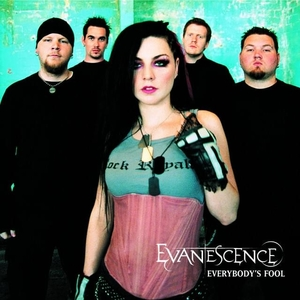
"Everybody's Fool" is a song by American rock band Evanescence from their debut studio album, Fallen. Wind-up Records released the song on May 31, 2004, as the album's fourth and final single. It was written by Amy Lee in 1999 about the promotion of unrealistic and hyper-sexualized ideals of perfection in the music industry, with detrimental influence on the youth's expectations and self-image. Guitarist Ben Moody and David Hodges also share songwriting credits on the song, which was produced by Dave Fortman.

"Going Under" is a song by American rock band Evanescence from their debut studio album, Fallen (2003). It was released by Wind-up Records as the album's second single on August 18, 2003. Lee wrote the song about coming out of a difficult relationship. Guitarist Ben Moody and David Hodges share songwriting credits on the song, produced by Dave Fortman. Musically, "Going Under" is primarily a nu metal song featuring electronic drum beats and a piano interlude.
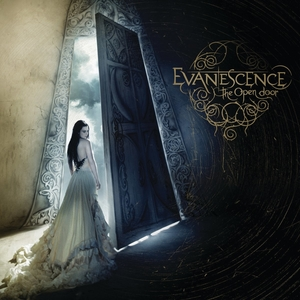
The Open Door is the second studio album by American rock band Evanescence, released on September 25, 2006, by Wind-up Records. Amy Lee had full creative control of the record, incorporating new elements into their previous musical styles, including her classical influences, homemade sounds, industrial rock, symphonic metal, progressive rock, electronica and the use of choirs on several songs. The album was written in the course of 18 months, and the recording process was delayed as a result of guitarist Terry Balsamo's stroke. Most of the songs were co-composed by Lee and Balsamo, with production handled by Dave Fortman.

"Call Me When You're Sober" is a song by American rock band Evanescence from their second studio album, The Open Door. It was released as the album's lead single on September 4, 2006. The track was written by Amy Lee and guitarist Terry Balsamo, and produced by Dave Fortman. A musical fusion of alternative metal, symphonic rock, and electropop, the song was inspired by the end of Lee's relationship with singer Shaun Morgan as well as Lee's other experiences at the time.
Lacrimosa is part of the Dies Irae sequence in the Roman Catholic Requiem Mass.

"Lithium" is a song by American rock band Evanescence from their second studio album, The Open Door. It was released by Wind-up Records on December 4, 2006 as the album's second single. "Lithium" was written by singer and pianist Amy Lee and produced by Dave Fortman. Lee initially wrote it on guitar when she was 16 years old, and later reworked it on piano, recording it with the band's performance. The song is a power ballad with lyrics about uncertainty between feelings of sorrow and happiness.

Amy Lynn Lee is an American singer-songwriter and musician. She is the co-founder, lead vocalist, lead songwriter, and keyboardist of the rock band Evanescence. A classically trained pianist, Lee began writing music at age 11 and co-founded Evanescence at age 13, inspired by various musical genres and film scores from an early age. Lee has also participated in other musical projects, including Nightmare Revisited and Muppets: The Green Album, and composed music for several films, including War Story (2014), Indigo Grey: The Passage (2015), and the song "Speak to Me" for Voice from the Stone (2017). She has also released the covers EP Recover, Vol. 1 (2016), the soundtrack album to War Story, the children's album Dream Too Much (2016), and collaborated with other artists such as Korn, Seether, Bring Me the Horizon, Lindsey Stirling, Body Count, and Wagakki Band. Lee sings in a mezzo-soprano vocal range.

"Good Enough" is a song by American rock band Evanescence from their second studio album, The Open Door. It was released on December 14, 2007 in Germany as the album's fourth and final single. The song was written by singer and pianist Amy Lee and produced by Dave Fortman. It was the last song Lee wrote for the album, and placed it as the final track on the album to symbolize its hopeful theme and a new beginning.
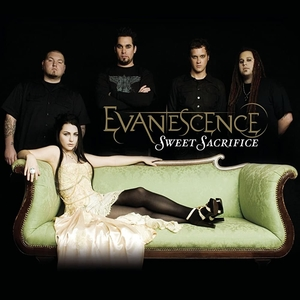
"Sweet Sacrifice" is a song by American rock band Evanescence from their second studio album, The Open Door. It was released on May 25, 2007, as the album's third single. The song was written by Amy Lee and Terry Balsamo, and produced by Dave Fortman. It is about coming out of the abusive relationship that inspired much of Lee's writing on the debut album. "Sweet Sacrifice" received generally positive reviews by critics, and was nominated for Best Hard Rock Performance at the 50th Grammy Awards. Its music video was directed by P.R. Brown.
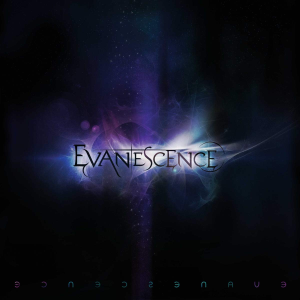
Evanescence is the third studio album by American rock band Evanescence, released on October 7, 2011, by Wind-up Records. The band began writing the album in June 2009. Its release was delayed several times; on February 22, 2010, the band entered the studio with producer Steve Lillywhite but later stopped working with him because he "wasn't the right fit". At the time the album was scheduled for an August or September 2010 release, but Lee later announced that Evanescence had postponed recording to write more material. In April 2011, the band returned to the studio with producer Nick Raskulinecz. Evanescence is the first Evanescence album to be written as a band, with Lee, guitarist Terry Balsamo, guitarist Troy McLawhorn, bassist Tim McCord and drummer Will Hunt co-writing the music together.
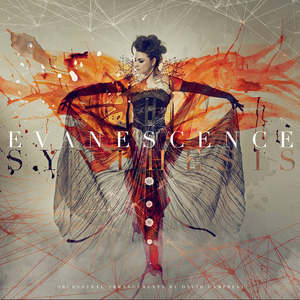
Synthesis is the fourth studio album by American rock band Evanescence. It was released on November 10, 2017, through BMG Rights Management. The album includes reworked orchestral and electronica arrangements of some of the band's previous material, in addition to two new songs, "Imperfection" and "Hi-Lo", and instrumentals. The orchestra was arranged and conducted by David Campbell, with the album's production handled by Will Hunt (Spaceway) and Amy Lee.

Synthesis Live was a concert tour by American rock band Evanescence, in support of their fourth studio album, the orchestral and electronica-based Synthesis (2017). This was the first tour where the band performed with an orchestra on stage. For each city on the tour, a local orchestra was assembled by conductor Susie Seiter. Synthesis Live included 60 concerts in cities across North America in 2017 and 2018, four concerts in Oceania and 18 concerts in Europe in 2018. The tour received critical acclaim.

"Imperfection" is a song by American rock band Evanescence from their orchestral-electronica fourth studio album, Synthesis (2017). It was released as the lead single from the album on September 15, 2017. Amy Lee wrote the song about fighting for one's life, from the perspective of someone left behind after a loss. Produced by Will "Spaceway" Hunt and Lee, "Imperfection" fuses electronic and symphonic music with trip hop percussion. An accompanying music video was released on October 19, 2017.

The Bitter Truth is the fifth studio album by American rock band Evanescence. After pandemic delays, it was released on March 26, 2021, through BMG Rights Management. Produced by Nick Raskulinecz, it is the band's first album of all-new material since their 2011 self-titled third album. The Bitter Truth received a generally positive critical reception. It reached number 11 on the US Billboard 200, top five on the Billboard Independent, Alternative, Hard Rock, and Rock Albums charts, and the top 10 of multiple international album charts.


















